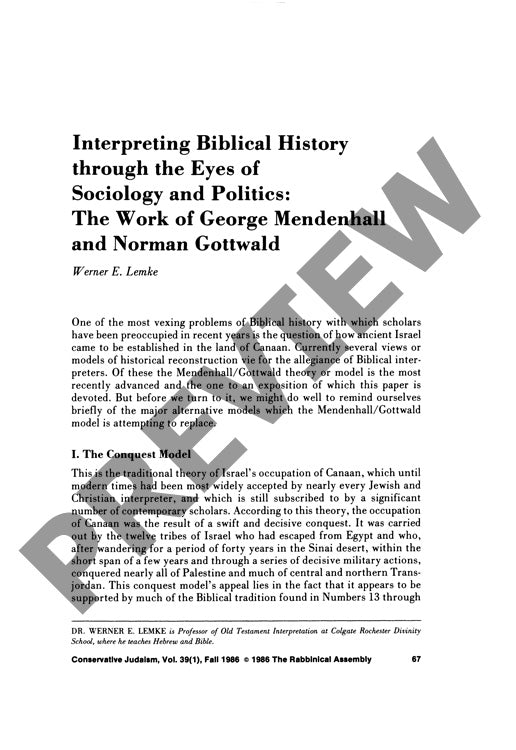Interpreting Biblical History Through Th
Couldn't load pickup availability
Ancient Israel's emergence in Canaan has traditionally been explained through conquest or gradual immigration, but a revolutionary "peasants' revolt" theory offers compelling alternative insights into this pivotal historical transition. The Mendenhall/Gottwald revolt model proposes that Hebrew identity emerged primarily through social upheaval rather than ethnic descent, as indigenous Canaanite populations—including marginalized *'Apiru* groups—united with a small exodus community from Egypt to resist city-state feudalism. Through literary-critical analysis of biblical sources and sociological methodology, this research examines how early Israelite society developed from *mishpahah* to *shevet* levels into what Norman Gottwald characterized as an "anti-state" egalitarian confederacy. Investigation reveals that Israelite tribal structures represented territorial-agricultural communities rather than nomadic groups, while religious conversion facilitated rapid demographic growth through assimilation. Although Mendenhall's historical reconstruction illuminates crucial social dynamics, Gottwald's materialist interpretation of Yahwistic religion as purely symbolic of social egalitarianism raises significant theological concerns. The revolt model's enduring value lies not in its philosophical presumptions about biblical theology, but in its detailed sociological observations of early Israelite social organization and identity formation.

More Information
-
Physical Description
-
Publication Information
Published 1986
ISBN
-
Publication Credits
Werner Lemke

